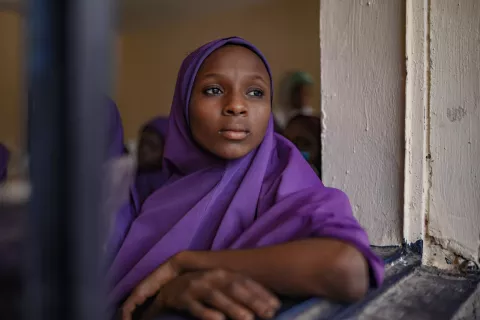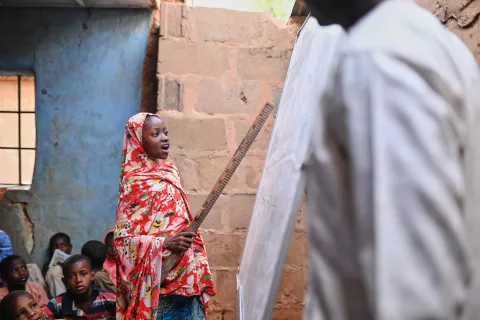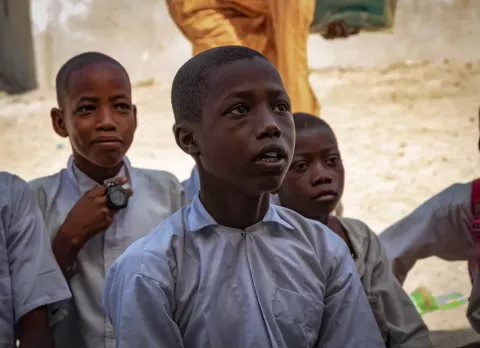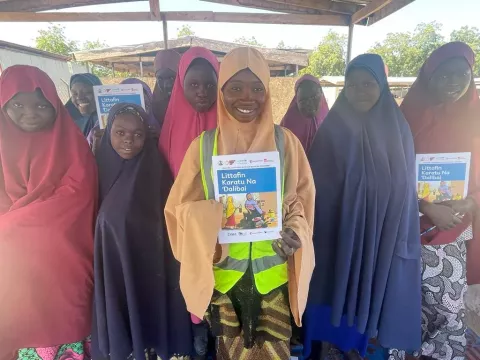Girls' Education Project Phase 3 (GEP3)
Programme Documents
Highlights
Nigeria is the most populous country in Africa, with over 206 million people' living in 36 states and the Federal Capital Territory. Despite efforts by the government to make basic education free and compulsory within the framework of the 2014 National Policy on Education, at least 10.2 million children at the primary level and 8.1 million children at the junior secondary school (JSS) level are reported to be out-of-school in Nigeria. ’ Most of these children were girls and primary school-aged children from the northern states. In addition, the gender parity index (GPI) in basic education in the North Central, North East, and North West geopolitical zones was 0.89, 0.77 and 0.73, respectively. Studies have indicated that about 50 percent of children attending school were not learning as expected. As such, 63 percent of children in rural areas and 84 percent of children in the lowest economic quintile could not read.
In response to this situation, UNICEF developed and implemented the Girls' Education Project Phase 3 (GEP3) from 2012–2022 in partnership with the Government of Nigeria and the Foreign, Commonwealth & Development Office (FCDO) of the United Kingdom. With an investment of GBP79 million (approximately US$109.1 million), GEP3 aimed to improve basic education, increase social and economic opportunities for girls and reduce disparities in learning outcomes between girls and boys in northern Nigeria. The programme focused on addressing the barriers to girls' education, including sociocultural and gender norms, economic and socio-political contexts and constraints related to local governance, educational material, staff capacity and low financing in the education sector.
To fulfill UNICEF’s commitment to generate sound evidence on the results achieved for children, a final evaluation was conducted to generate lessons learned and ensure the sustainability of these efforts. This final evaluation presents the findings of the independent evaluation of GEP3 undertaken by the Oversee Advising Group.
See more education knowledge products here.




